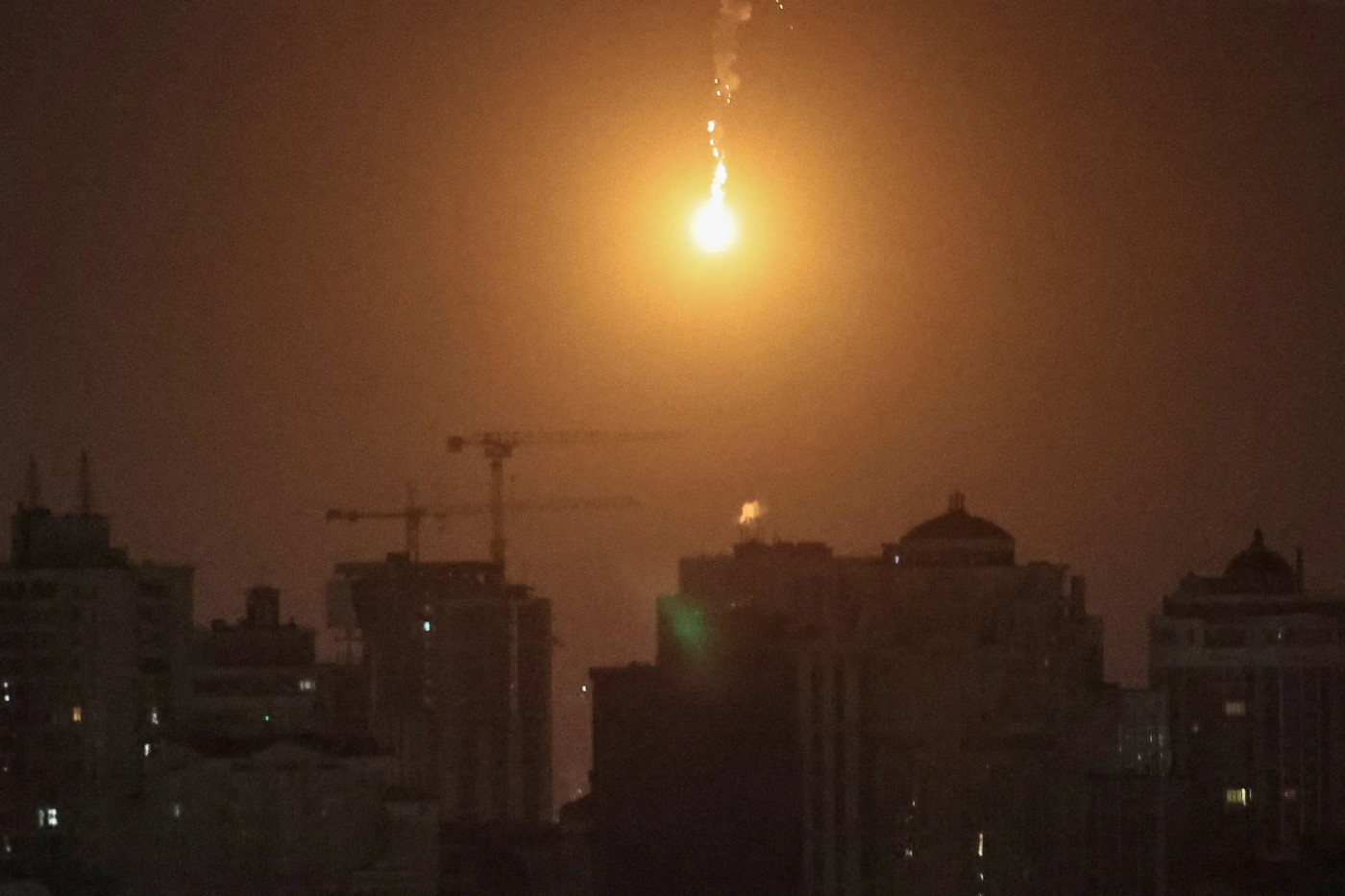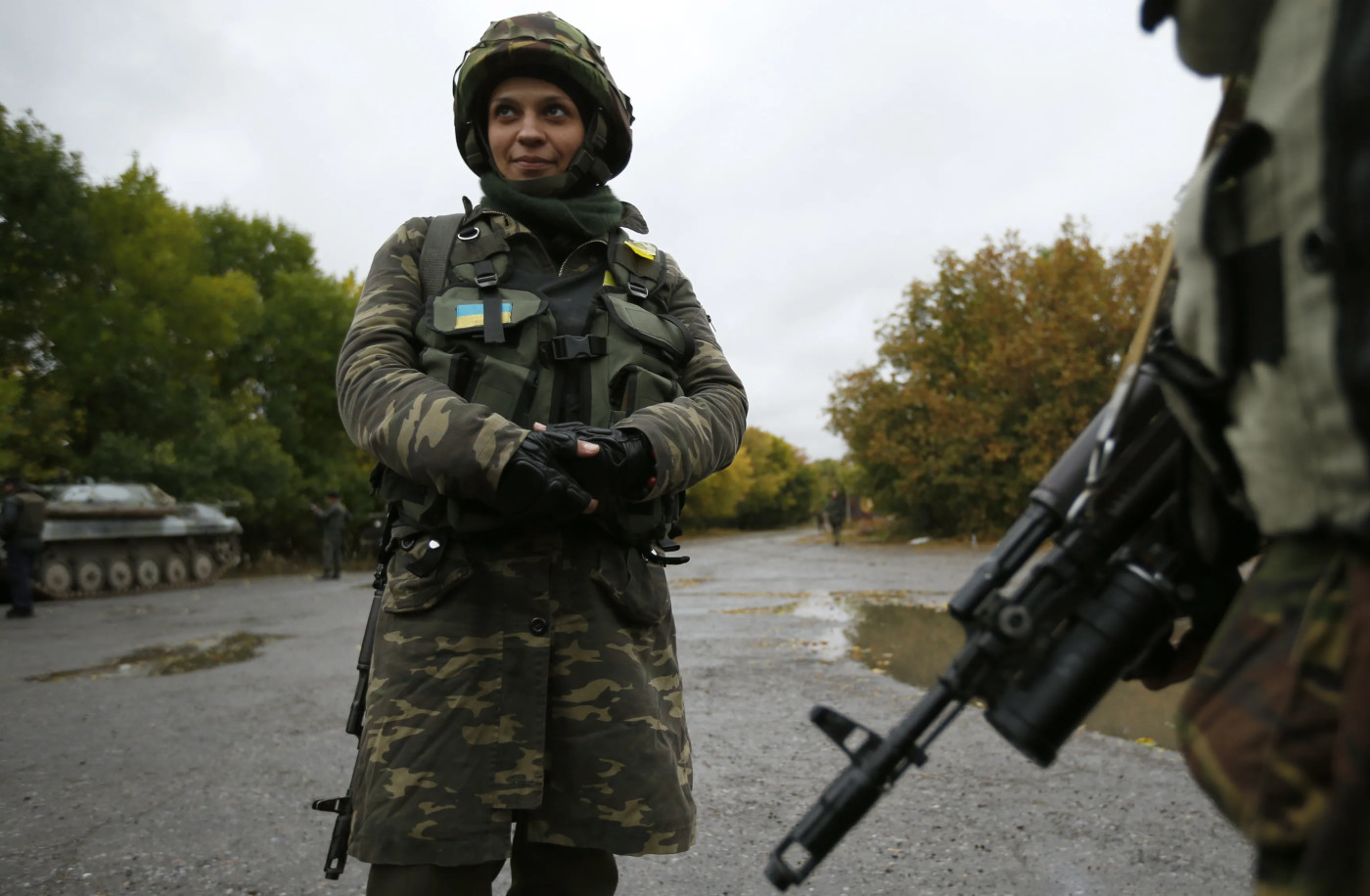How the Gaza Hostage Crisis Forces US to Follow Israel's Lead
Nearly two weeks into the war between Israel and Hamas, there are more questions than answers about the hostage crisis unfolding inside the Gaza Strip.
But one thing is clear: Israel is in charge of the hostage rescue operation, and the United States is not calling the shots. It's a position the U.S. has rarely if ever found itself in when dealing with international hostage crises involving American citizens. That the hostages are being held in an active war zone adds to the complexity of a hostage crisis unlike any other in modern American history, according to former U.S. national security officials and hostage negotiation experts.
"It's unprecedented," Roger Cressey, a counterterrorism official in the Clinton and George W. Bush administrations, told Newsweek. "I'm hard-pressed to think of a prior scenario where we have been in a supportive role and Americans have been held hostage in this type of dynamic."
The initial phase of the hostage recovery effort offers clues about the Biden administration's role in the matter—as well as the unique challenges posed by trying to free hostages caught in the middle of a quickly escalating war.
"The situation is very complex," Dennis Pluchinksy, a former intelligence analyst for the State Department, told Newsweek. "I don't think any country has faced it [before]. There's no blueprint you can take off the shelf and use here."
As it unfolds, the hostage crisis will largely play out in secret, according to several sources with knowledge of the situation who asked not to be named to discuss one of the more sensitive aspects of the Israel-Hamas war.
The Israeli government and U.S. officials in Israel are working together to gather intelligence on the whereabouts of the hostages abducted by Hamas in its Oct. 7 attack, several sources said. Hamas, the militant group that controls the Gaza Strip, captured 199 people in Israel during the attack, according to the Israel Defense Forces.
"Israel is sharing intelligence with [the U.S.] constantly," Israel Bachar, the Consul General of Israel to the Pacific Southwest, told Newsweek.
Israel has said Americans are among the hostages being held in Gaza, but it's unclear what the exact number is. Israel itself does not know how many American hostages there are, one Israeli official told Newsweek.
A senior White House adviser said last week that 14 U.S. citizens remained "unaccounted for" after the initial Hamas attack. The number was revised down from 17 after the U.S. confirmed that several Americans previously unaccounted for had died in the attack, part of a rising death toll that now includes more than 1,400 Israelis and more than 3,000 Palestinians, according to the AP.
Days after the attack, Deputy Special Envoy for Hostage Affairs Steve Gillen traveled to Israel with Secretary of State Antony Blinken to oversee the administration's response to the hostage crisis. The Israeli hostage recovery effort is being led by Brig. Gen. Gal Hirsch. Gillen in recent days has met with Hirsch and other Israeli army officials involved in the rescue mission.
The U.S. is limited in its involvement, however, because it has far less intelligence than Israel on Hamas and its activities in Gaza, a densely-populated coastal strip home to 2.1 million people.
"Our situational awareness in a place like Gaza is not as strong as Israel's," Brian Katulis, vice president of policy at the Middle East Institute, told Newsweek.
Israel has also signaled that it plans to carry out the hostage recovery mission on its own, and the White House has made clear it has no plans to send U.S. forces into Israel.
"For practical matters, the U.S. has to take a back seat to the Israeli expertise" in resolving the hostage crisis, Elaine Kamarck, a senior fellow at Brookings, told Newsweek.
"This is not an American operation," she added. "This is an Israeli operation."
The Israeli military has a special operations unit, Sayeret Matkal, that is widely seen as one of the best in the world at conducting difficult hostage recovery missions.
Sayeret Matkal's storied reputation is built on successful operations like the famous 1976 Entebbe raid. In that incident, a team of Israeli commandos led by Israeli Prime Minister Benjamin Netanyahu's brother Yonatan Netanyahu, who died in the operation, rescued 102 hostages who were aboard a plane that was hijacked by Palestinian militants and diverted to Uganda's Entebbe International Airport.
There are few allies the United States would rather see in charge of a rescue mission on foreign soil involving American hostages. That may make it easier for the Biden administration to take a backseat to Israel in the Hamas hostage crisis.
Still, the dynamic puts the U.S. in a bind, several analysts said, since the White House won't have control over events on the ground inside Gaza, especially if Israel moves forward with a likely ground invasion.
The situation is further complicated by the fact that America and Israel, while close allies, don't share identical goals for responding to the brutal attack by Hamas.
Biden traveled to Israel on Wednesday to pledge his full support for Israel and warn adversaries not to turn the conflict into a broader regional war.
At the same time, the White House has urged Israel to allow humanitarian aid into Gaza. The administration has expressed concern over the rising number of Palestinian civilians killed in the fighting, including in a deadly explosion Tuesday at a hospital in Gaza. Israel and Hamas blamed each other for the blast, which sparked outrage across the Middle East and upended Biden's trip to the region.
In contrast, Israel's stated priority is eliminating Hamas's military capabilities, to ensure that the group—which is listed by the U.S. and Israel as a terrorist organization—cannot attack Israel in the future. Conducting a war and a hostage recovery effort at the same time will make it hard for Israel to ensure the hostages' safety, Middle East and hostage crises experts said.
"The lives of the hostages will obviously be at greater risk if there is an invasion," Robert Mnookin, the director of the Harvard Negotiation Research Project, told Newsweek. "And the question [is] whether Israel is implicitly prepared to sacrifice the hostages as part of the war effort."
The U.S. may not have much of a say in whatever choice Israel ends up making.
"We are basically operating with one arm tied behind our back," said a source who requested anonymity to speak candidly about the Biden administration's response to the hostage crisis.
"There is a grim acknowledgement that the likelihood of all the hostages being rescued is extremely low," the source told Newsweek, adding, "you have to be prepared for a worst-case scenario."
Still, that doesn't mean the U.S. will stand idly by as the crisis evolves. And experts cautioned there's no guarantee the hostages will become casualties of the fighting between Israel and Hamas.
Hamas has reportedly signaled it is willing to release some of the hostages if Israel stops its bombardment of Gaza, a sign the group may view the hostages as a valuable bargaining chip to hold over Israel as the war drags on. Hamas has long called for Israel to release thousands of Palestinian prisoners.
Hamas released its first video earlier this week of an Israeli hostage, and has also claimed that it is treating non-Israeli hostages as "guests."
Qatar, where Hamas has a political presence, is acting as the chief intermediary in hostage negotiations between Hamas and the Israel and United States side. Having a trusted go-between with Hamas gives the Biden administration an important, albeit indirect, line of communication that it hasn't always had in past hostage negotiations.
"Qatar is the kind of interlocutor that we would have given anything for in the Iranian hostage crisis," Gary Sick, the chief White House national security adviser on Iran during the hostage crisis, told Newsweek.
But Sick and others noted that Americans caught in the 1979 Iranian crisis and other high-profile foreign hostage crises in recent decades were typically held captive at one known location. It's unclear where the hostages who were abducted by Hamas are hidden, and there is growing concern in intelligence circles that they may be held at several locations and by multiple militant groups that operate in Gaza.
"It's hard for even our most reliable interlocutors on this, like Qatar and Egypt, to get a grip on who we're dealing with," said Katulis, the Middle East Institute analyst and former National Security Council official. Two weeks into the war, the hostage crisis is still marked by a dizzying number of unknowns, he added.
The hostage crisis is unfolding "in a live combat zone and it's going to get even worse, it seems," Katulis said. "This is a horror show."
Disclaimer: The copyright of this article belongs to the original author. Reposting this article is solely for the purpose of information dissemination and does not constitute any investment advice. If there is any infringement, please contact us immediately. We will make corrections or deletions as necessary. Thank you.





